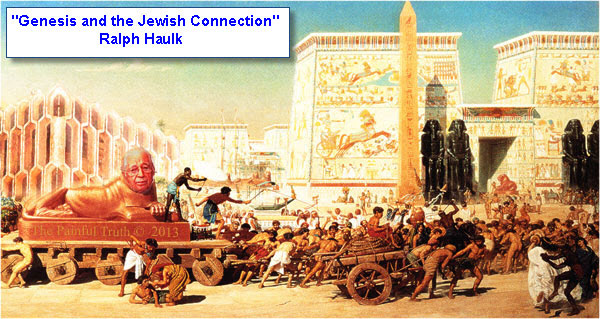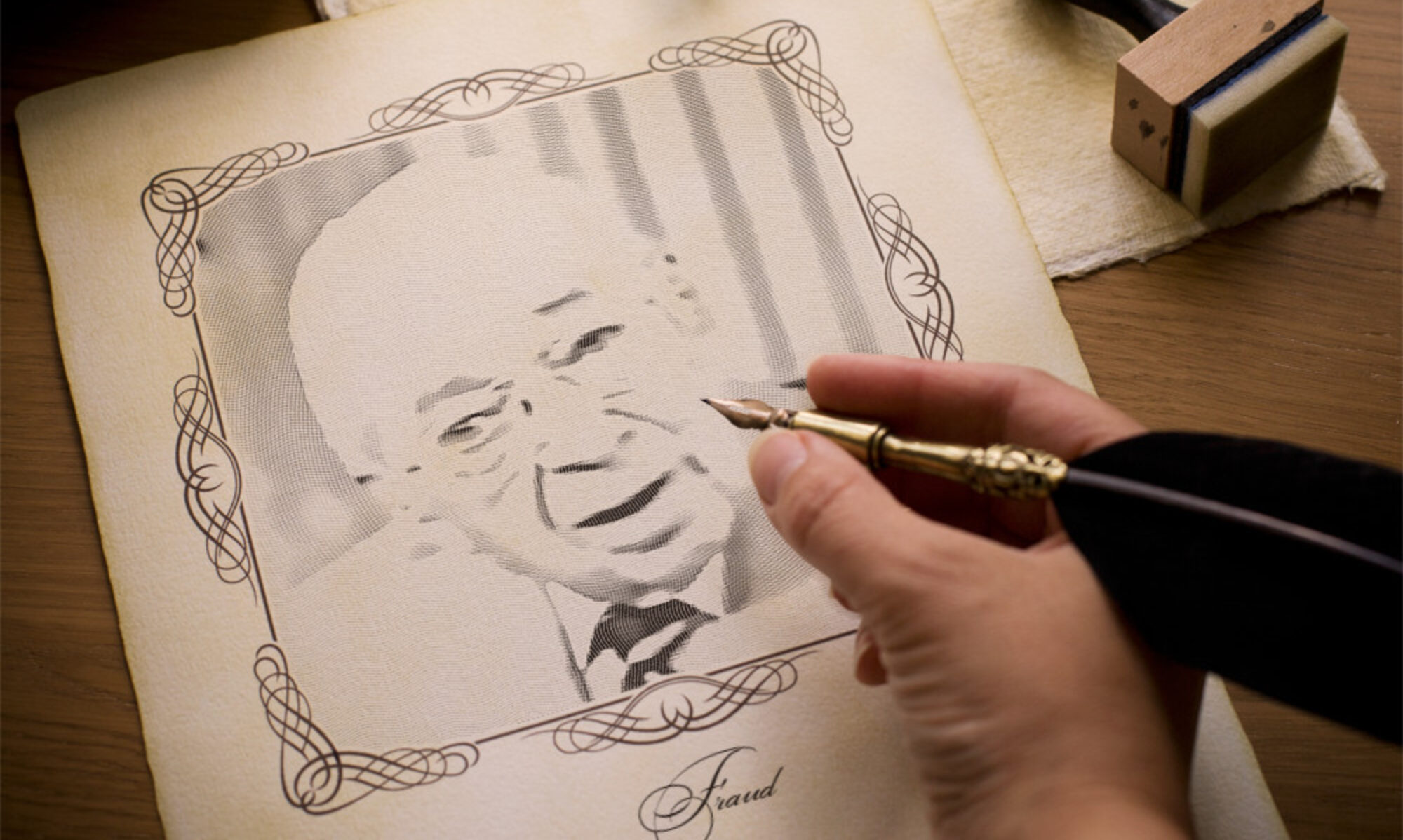
People are more and more waking up to the fact that there is a “Jewish Connection” between our present economic system and the Jews. I have long maintained that the ‘Mystery Babylon” could only be the Jews, but a former schoolmate of mine, who grew up to be a lawyer and an Episcopalian minister (which makes him doubly disgusting to me), pointed out the beginnings of Jewish economic philosophy in Genesis 46 and 47.
You are already aware of the story of Joseph, rising to the power of Pharaoh’s finance minister, but a more detailed description of his plans and policies are given away in Genesis. When Joseph invited the tribes of his father and brethren into Egypt, he had this story planned out for the Pharaoh:
Genesis 46: 32: “And the men are shepherds, for their trade hath been to feed cattle; and they have brought their flocks, and their herds, and all they have.”
Then Joseph advised his family: “
…when Pharaoh shall call you, and shall say ‘ What is your occupation?’ That ye shall say, Thy servants’ trade hath been about cattle, from our youth even until now, both we, and also our fathers; that ye may dwell in the land of Goshen; for every shepherd is an abomination unto the Egyptians”.
What ensued from that is a sharp contrast of economic philosophies. Israel took their herds to Goshen, and Pharaoh let them grow and trade freely, as well as making them “rulers” over his own herds and flocks(Gen. 47:6).
|
|
It was then that the famine had taken hold in Egypt, and Joseph had been fortunate enough to store grain for the Pharaoh. There was no bread in the land, so the Egyptians were forced to buy grain from Joseph, who happily took all their money. As the famine extended, the Egyptians came again to Joseph, and asked him for a solution to the problem, as they had no more money. Joseph worked out another deal (Gen. 47:16), and asked for their cattle.
Of course Israel was officially in charge of the Pharaoh’s cattle, so they had free reign in the land to trade and build further fortunes. Then the Egyptians ran out of cattle, and the famine persisted. The next step was socialism, verse 19, suggested by the people: “Buy us and our land for bread, and we will be servants unto Pharaoh: and give us seed, that we may live…”. |
All the land then became the Pharaoh’s. The next step was simply to gather the people into cities. They were effectively caged so the armies of the Pharaoh could keep an eye on them.
But Joseph was very shrewd, as he left the land of the priests untouched. They had effectively the same freedom as Israel, and their leadership with such freedom would no doubt support the Pharaoh and justify his position as a god before the people. So, the Egyptians said, “In God We Trust”. Joseph had separated church and state, but had given exemptions so the church would be inclined to support the state. Very shrewd.(Gen 47:22).
All that remained was for Joseph to give the people seed to plant, so they could grow wealth for Pharaoh, and Joseph laid a tax on them, Genesis 47:24:
” And it shall come to pass in the increase that ye shall give the fifth part unto Pharaoh, and four parts shall be your own for seed…”
Sound familiar in principle? “And Joseph made it a law over the land of Egypt unto this day, that Pharaoh should have the fifth part, except the land of the priests only, which became not Pharaoh’s.”
Verse 27: “And Israel dwelt in the land of Egypt, in the country of Goshen; and they had possession therein, and grew and multiplied exceedingly.”
The plan was simple enough: first, get control of the money. If the control of money is taken from the people, they are forced to begin trading possessions. Once possessions are taken away, the people are easily managed to become obedient citizens. If the religions are free, and if they are given their freedom by being servant to the king or the government, they will tend to support the benevolence of the government, with lines like “this divinely ordered capitalist system”.
The interesting twist is found in Genesis 50:20, as Joseph was about to die:
”But as for you, ye thought evil against me; but God meant it unto good, to bring to pass, as it is this day, to save much people alive”.
But notice that Israel had free enterprise and wealth, while the Egyptians had traded their freedom and possessions away for security, even serving a priesthood that owed its ‘freedom” to Pharaoh.
| What we see in our own government today was laid out in principle thousands of years ago. Of course, we also see that free enterprise doesn’t serve the needs of empire and war. Israel became equal slaves to the Egyptians, forced to labor for the Pharaoh, because the Pharaoh had seen, in Exodus 1:9, ” The people of the children of Israel are more and mightier than we”. |
|
The problem, as Pharaoh correctly saw, was that a free people tend to act in their own self interest, and if Pharaoh should wage a war with other countries, Israel might well choose to serve his enemies out of self interest. The motivation of government to grant “security” is well shown by that example. Since Israel was not willing to become “equal” with Egyptian citizens, they became subject to forced labor, with their possessions taken by decree. What Israel saw as slavery, other Egyptians would see as justice, “equality”.
The lesson, from Genesis to Revelation, is not lost on the Jews. Their history has been one of adaptation and control by trade and commerce, from Babylon to the present day. As historian Max DiMont points out in “The Indestructible Jews”, they have developed the beginnings of our present banking system, developed a process of common law by which nations would be ruled, and were selected as the finance ministers for gentile kings due to their ability to charge interest on non-Jews. As Joseph did in Genesis, once they gained control of the money, all else follows. This lesson is not lost on Christians either. They took the banking system from the Jews and began “saving souls” for God, king, and country, using the same formula.
Karl Marx laid out the formula quite well. When money becomes the “universal equivalent”, the general purchasing power, all things can be had for money. But people do not sell for money, wrote Marx, until the possessor had “alienated’ himself from the property. This meant, wrote Marx, that the “so-called inalienable rights, and the fixed property relationships corresponding to them, break down before money”. He was, after all, a Jew. He was also quite correct in that regard. What Marx wrote, Joseph had long ago put in practice.


